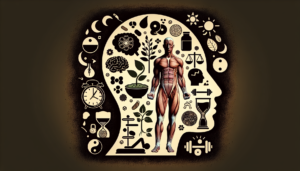Exploring the Benefits of Ashwagandha: An Adaptogen for Modern Life
Understanding Ashwagandha
What is Ashwagandha?
Ashwagandha, scientifically known as Withania somnifera, is a powerful adaptogenic herb that has been used for centuries in Ayurvedic medicine. Often referred to as “Indian ginseng,” this herb is renowned for its ability to help the body adapt to stress. The name “ashwagandha” translates to “smell of a horse,” reflecting its traditional uses for strength and health.
The Historical Significance
The roots of Ashwagandha date back over 3,000 years to ancient Indian texts, where it was considered one of the cornerstones of Ayurvedic healing practices. Historically, it was used to enhance vitality, increase resilience to stress, and promote general wellness. Its adaptogenic properties make it a staple in holistic health.
The Science Behind Adaptogens
What are Adaptogens?
Adaptogens are natural substances that help the body resist stressors of various kinds, whether physical, chemical, or biological. They work by supporting the adrenal system, the body’s stress response mechanism. This can lead to a greater sense of calm, improved focus, and a balanced emotional state.
The Mechanism of Ashwagandha
Ashwagandha adapts to the body’s needs by balancing cortisol levels, which is the hormone primarily responsible for stress responses. When taken consistently, it has been shown to lower cortisol production, leading to enhanced resilience to stress and anxiety. Additionally, Ashwagandha can enhance the body’s production of serotonin and dopamine, which are crucial for mood regulation.
Health Benefits of Ashwagandha
Reducing Stress and Anxiety
One of the most touted benefits of Ashwagandha is its ability to combat stress and anxiety. Research shows that regular consumption of Ashwagandha can significantly reduce levels of stress and anxiety in individuals. It acts on the hypothalamic-pituitary-adrenal (HPA) axis, leading to reduced cortisol levels, promoting relaxation and mental clarity.
Research Findings
Studies have demonstrated that individuals taking Ashwagandha experienced a significant decrease in anxiety levels compared to those taking a placebo. In one clinical trial, participants reported a 69% reduction in anxiety symptoms, showcasing its effectiveness as a natural remedy.
Enhancing Physical Performance
Ashwagandha is not just a mental wellness herb; it also has the potential to enhance physical performance. Athletes and fitness enthusiasts often turn to Ashwagandha for its ability to improve strength and endurance.
How Does it Work?
The herb appears to influence the body’s energy production and muscle strength. It aids in increased stamina by boosting the body’s ability to utilize oxygen and by enhancing muscle recovery after strenuous workouts. Some studies have found that men taking Ashwagandha exhibited greater gains in muscle strength and size during resistance training compared to those not taking it.
Improving Concentration and Cognitive Function
In today’s fast-paced world, maintaining focus and cognitive performance is crucial. Ashwagandha can help enhance concentration and cognitive function by reducing stress and promoting brain health.
Brain Health Benefits
Research indicates that Ashwagandha may promote antioxidant activity and support neuroprotective mechanisms. This means it could potentially help in fighting neurodegenerative diseases and cognitive decline, making it a valuable supplement for those looking to maintain their mental slant into the later stages of life.
Boosting Immune Function
Our immune system plays a vital role in keeping us healthy, especially during stressful times. Ashwagandha may help to modulate the immune system, making it more efficient and resilient.
Impact on Immunity
This herb can enhance the body’s natural defense mechanisms by increasing the activity of immunoglobulin and anti-inflammatory cells. Additionally, it can enhance the body’s resilience to infections by promoting faster recovery.
Supporting Heart Health
Ashwagandha has been studied for its potential heart health benefits. By lowering stress levels and thus reducing cortisol, this adaptogen can indirectly support cardiovascular health.
Heart Benefits Explained
High cortisol levels are linked to higher blood pressure and cholesterol, both of which can impact heart health. By mitigating stress and promoting overall health, Ashwagandha may play a supportive role in maintaining a healthy heart.
Enhancing Sexual Health and Vitality
This herb has a reputation for enhancing sexual health, particularly in men. Ashwagandha is thought to improve libido and may enhance fertility by boosting testosterone levels.
A Study on Male Fertility
Research involving men with infertility problems showed that those taking Ashwagandha saw improvements in testosterone levels and sperm quality. This remarkable finding highlights the adaptogen’s potential to improve sexual health responsibly.
Usage and Dosage of Ashwagandha
Forms of Ashwagandha
Ashwagandha is available in various forms, including powders, capsules, tinctures, and teas. Each form has its unique way of delivering the benefits, making it easier for individuals to incorporate it into their daily routine.
Choosing the Right Form
– Powders: Typically mixed with water or smoothies.
– Capsules: Convenient for those who prefer precise dosages.
– Tinctures: Liquid extracts that can be taken directly or added to beverages.
– Teas: Herbal teas provide a soothing way to enjoy Ashwagandha’s benefits.
Recommended Dosage
The optimal dosage of Ashwagandha may vary based on individual needs and the form used. Generally, a dosage of 300-600 mg taken daily is common for promoting health and well-being. However, starting with a lower dose to assess tolerance is advisable.
Consultation with a Healthcare Professional
As with any supplement, it’s essential to consult a healthcare provider before beginning any new regimen, especially for individuals with underlying health issues or those pregnant or nursing.
Possible Side Effects and Considerations
Understanding Potential Side Effects
While Ashwagandha is generally considered safe for consumption, some individuals may experience side effects.
Common Side Effects
– Mild gastrointestinal discomfort
– Diarrhea
– Nausea
– Drowsiness
These effects are often mild and can be mitigated by starting with a lower dosage.
Who Should Avoid Ashwagandha?
There are specific groups of individuals who may need to avoid or be cautious when using Ashwagandha.
Target Groups
– Pregnant and breastfeeding women: The effects on fetal and infant health are not well studied.
– Individuals taking sedatives: Ashwagandha can enhance the effects of sedatives, leading to excessive drowsiness.
– Those with autoimmune diseases: Its immune-boosting properties could exacerbate these conditions.
It’s crucial to be aware of your personal health context and exercise caution.
Integrating Ashwagandha into Daily Life
Simple Ways to Incorporate Ashwagandha
Integrating Ashwagandha into your daily routine can be both straightforward and enjoyable. Here are some innovative and easy methods to consider.
Recipes and Tips
– **Smoothies**: Add Ashwagandha powder to your morning smoothie for an energizing boost.
– **Herbal Tea**: Brew Ashwagandha tea with honey and lemon for a calming evening ritual.
– **Oatmeal or Yogurt**: Stir in Ashwagandha for added nutrition at breakfast.
– **Supplements**: Opt for capsules if you prefer an easy, mess-free option.
Ashwagandha in Mindfulness Practices
Consider combining the use of Ashwagandha with mindfulness practices such as yoga or meditation for maximum benefit. The calming effects of Ashwagandha can complement relaxation techniques beautifully.
Guided Practices
– Attend a yoga class that focuses on stress relief and mindfulness
– Engage in daily meditation sessions where you take Ashwagandha as part of your routine
– Keep a journal reflecting on your mood and well-being as you incorporate Ashwagandha
Living a Balanced Life with Ashwagandha
The Holistic Approach
Using Ashwagandha is most effective when paired with other lifestyle changes aimed at reducing stress and improving overall health. A balanced diet, regular exercise, and adequate sleep can compound the benefits provided by Ashwagandha.
Diet and Nutrition
Ensure you’re consuming a varied and balanced diet rich in fruits, vegetables, whole grains, and lean proteins. Staying hydrated and reducing processed foods can help enhance the adaptogenic benefits of Ashwagandha.
Pursuing a Healthy Lifestyle
Regular physical activity is essential for reducing stress and ensuring physical wellness. Incorporating Ashwagandha into your post-workout routine can aid in recovery and enhance overall performance.
Types of Activities
– Cardiovascular exercises: Jogging, cycling, or any form of aerobic activity can significantly lower stress levels.
– Strength training: Incorporating resistance workouts can benefit from Ashwagandha for muscle recovery.
Taking the Next Steps
Patterns of Mindfulness
Adopt mindfulness practices alongside using Ashwagandha. This can help you cultivate an awareness of your mental state and emotional well-being.
Encouraging Mindfulness
– Observe how your body feels with regular use of Ashwagandha.
– Journal about your experiences with stress, mood changes, and general health.
– Share your journey with friends or online communities, creating a support network focused on holistic wellness.
The Road to Self-Discovery
Using Ashwagandha can be part of a more extensive journey toward self-discovery and well-being. Embrace this time to explore what works for you personally in terms of stress management and overall health.
Acknowledging Personal Growth
Take notice of how your life evolves with the use of Ashwagandha. Track your emotional and physical progress over time, identifying what aspects resonate with you.
By integrating Ashwagandha into your daily routine, you may unlock a world of benefits that align with a healthy, balanced life, ultimately transforming how you tackle modern stressors.








